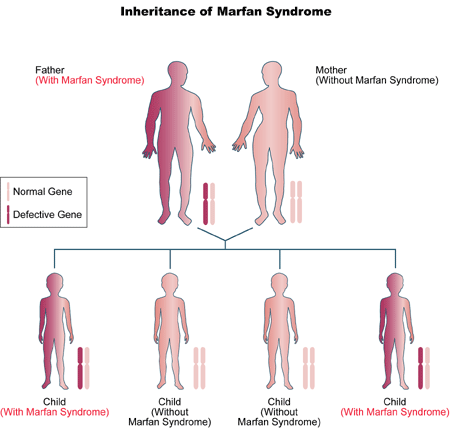Who Is At Risk for Marfan Syndrome?
Marfan syndrome is a hereditary disorder passed from
parent to child. Every person has two copies of every gene in the body (except
some genes related to gender). One copy of each gene pair is inherited from
each parent. It only takes one copy of the defective gene, inherited from one
parent, for a person to have Marfan syndrome.
If one parent of a couple has Marfan syndrome, each
of their children has a 50 percent chance of inheriting the Marfan gene.
If both parents have Marfan syndrome, each of their
children has a 1 out of 4 chance of inheriting two normal copies of the gene, a
2 out of 4 chance of inheriting one copy of the Marfan gene, and a 1 out of 4
chance of inheriting two copies of the Marfan gene. Pregnancies in which the
fetus inherits two copies of the Marfan gene are rare. Infants born with two
copies of the Marfan gene are severely affected and usually do not survive
beyond infancy.

|

